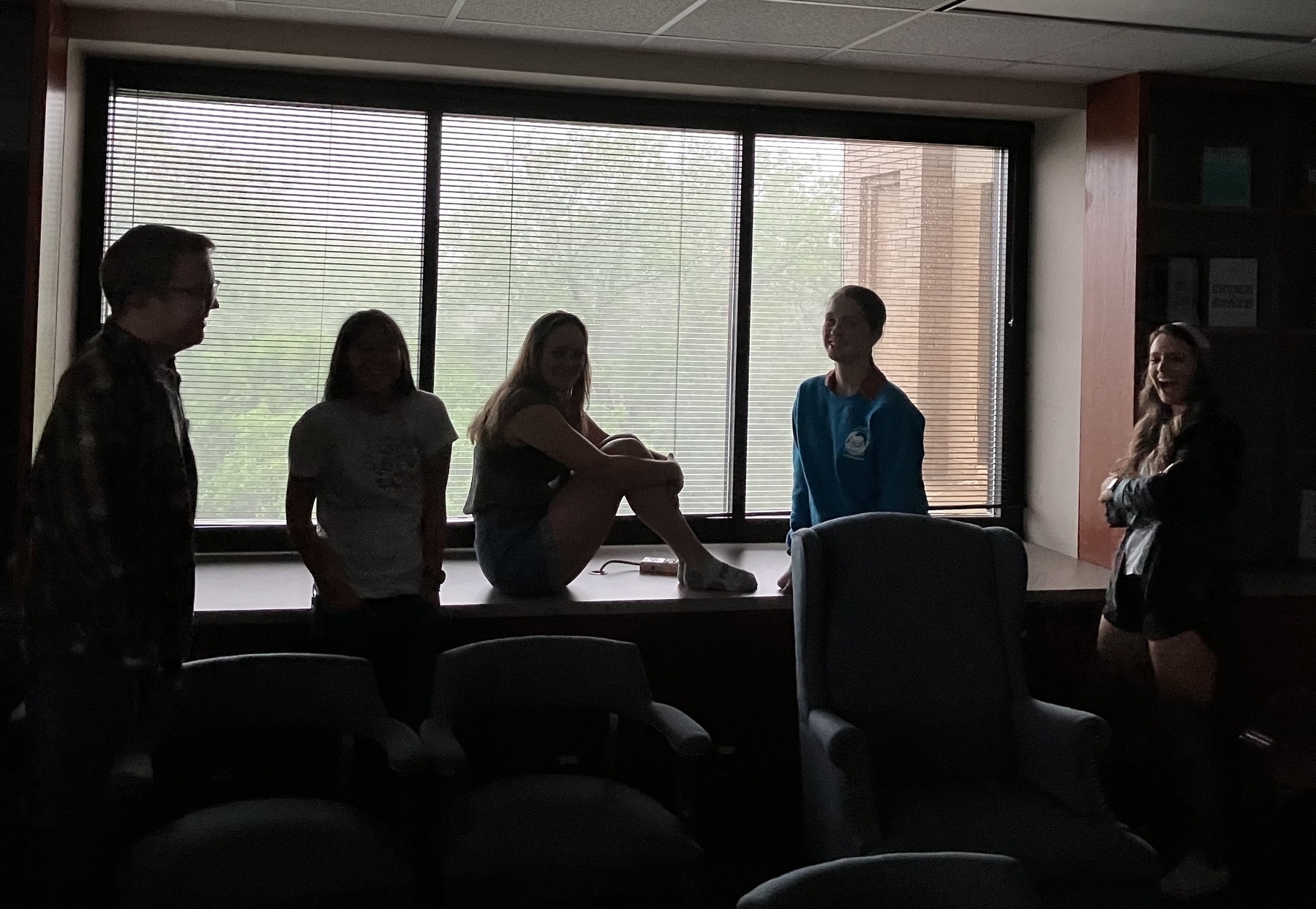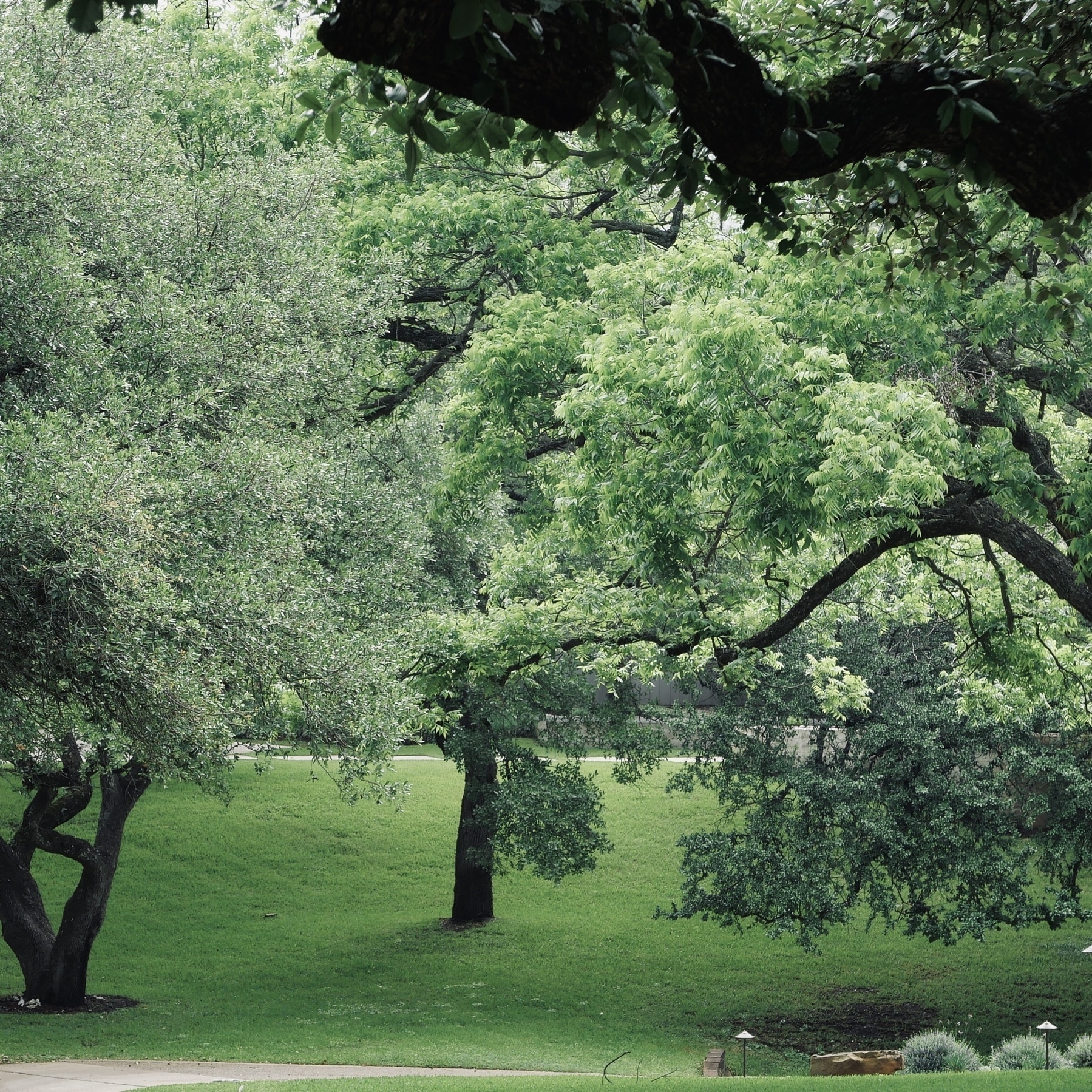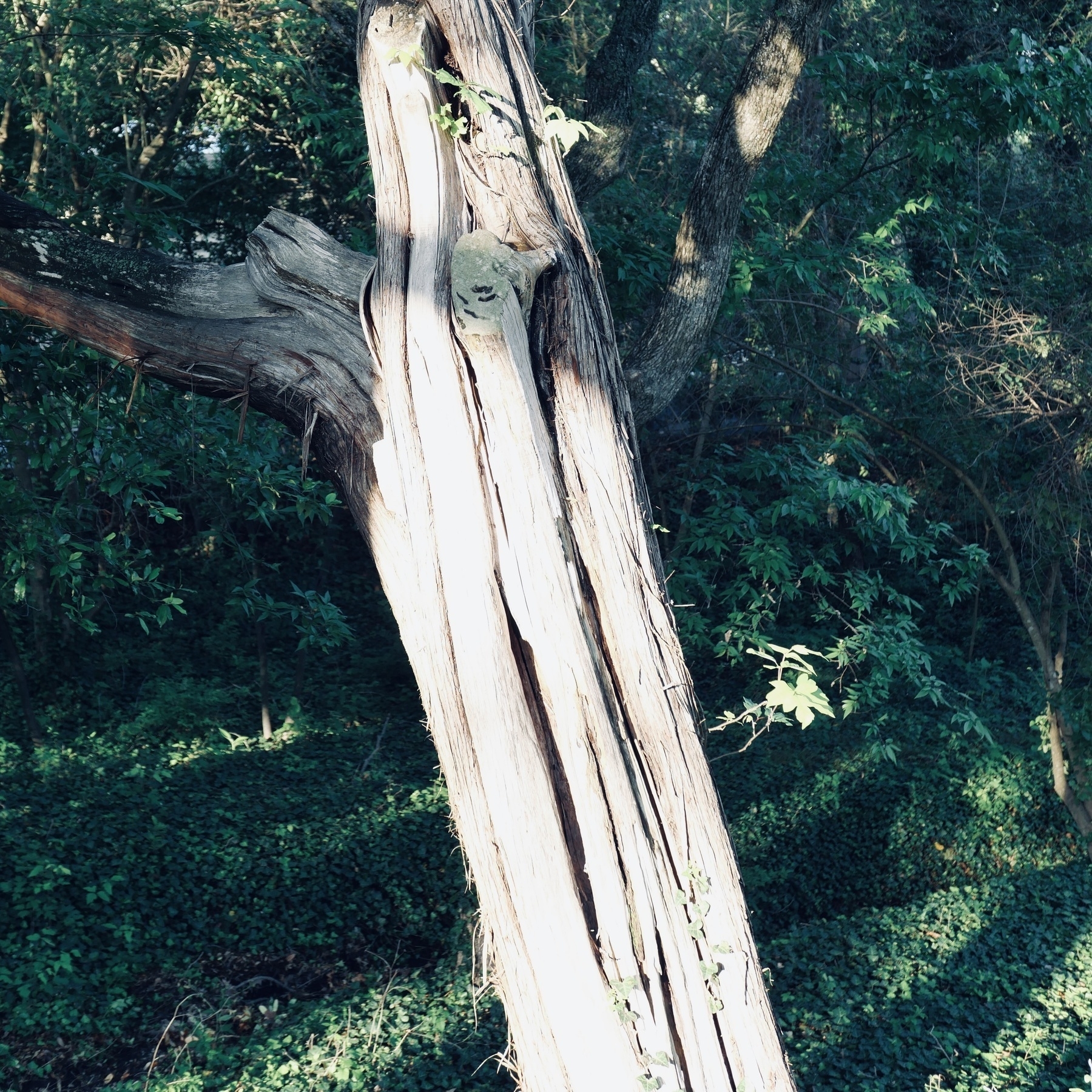the speed of God
Many of the key ideas in Andy Crouch’s new book The Life We Are Looking For emerge from his definition of the human person, which he derives from the Shema of Deuteronomy 6, as adapted by Jesus in Mark 12 (keywords emphasized):
One of the scribes came near and heard them disputing with one another, and seeing that he answered them well, he asked him, “Which commandment is the first of all?” Jesus answered, “The first is, ‘Hear, O Israel: the Lord our God, the Lord is one; you shall love the Lord your God with all your heart, and with all your soul, and with all your mind, and with all your strength.’ The second is this, ‘You shall love your neighbor as yourself.’ There is no other commandment greater than these.”Thus Andy: “Every human person is a heart-soul-mind-strength complex designed for love.” Simple and direct; but the more you think about it the more complex and generative a definition it is.
Early in his book, Andy talks about Silicon Valley entrepreneurs who want to give us “superpowers.” And he says:
Here is the problem: you cannot take advantage of a superpower and fully remain a person, in the sense of a heart-soul-mind-strength complex designed for love. This is not an unfortunate side effect of superpowers or a flaw that could be overcome with future improvements. It is the essence of their design because superpowers are power without effort. And power without effort, it turns out, diminishes us as much as it delights us.Elsewhere in that same chapter he quotes the Japanese theologian Kosuke Koyama saying that “the speed of God” is three miles an hour because that was the speed at which Jesus moved through his world. So maybe, and I think this is one of the chief burdens of Andy’s book, what makes the most sense for us is to try whenever possible to move at the speed of God – and in that way refuse the offer of superpowers.
Of course, this dovetails with a lot of things people have been writing lately about slowness, but what I like about Andy’s book is that it specifies why we can find ourselves responding so warmly to the possibility of slowness. What happens when we seek superpowers, and especially super-speed, is the sacrifice of what I want to call our proper powers – the powers through the exercise of which we (heart-soul-mind-strength) flourish in love.
Let’s take a peek into Koyama’s Three Mile an Hour God:
Jesus Christ came. He walked towards the ‘full stop’. He lost his mobility. He was nailed down! He is not even at three miles an hour as we walk. He is not moving. ‘Full stop’! What can be slower than ‘full stop’ ‘nailed down’? At this point of ‘full stop’, the apostolic church proclaims that the love of God to man is ultimately and fully revealed. God walks ‘slowly’ because he is love. If he is not love he would have gone much faster. Love has its speed. It is an inner speed. It is a spiritual speed. It is a different kind of speed from the technological speed to which we are accustomed. It is ‘slow’ yet it is lord over all other speeds since it is the speed of love. It goes on in the depth of our life, whether we notice or not, whether we are currently hit by storm or not, at three miles an hour. It is the speed we walk and therefore it is the speed the love of God walks.Thus: “I find that God goes ‘slowly’ in his educational process of man. ‘Forty years in the wilderness’ points to his basic educational philosophy.”
When the economist Gary Becker delivered his Nobel Lecture in 1992, he titled it “The Economic Way of Looking at Life.” Here’s a key quote:
Different constraints are decisive for different situations, but the most fundamental constraint is limited time. Economic and medical progress have greatly increased length of life, but not the physical flow of time itself, which always restricts everyone to twenty-four hours per day. So while goods and services have expended enormously in rich countries, the total time available to consume has not.So it turns out that “the economic way of looking at life” – which is pretty much the American way of looking at life, and certainly the Silicon Valley way – means that you think of time as a scarce consumable resource. Which is indeed how most of us, it seems, think about time, and that, in turn, is why we might experience the idea of traveling at the speed of God as not just wrong but, more, offensive – a failure to maximize consumption.
Breaking that habit of thought, and imagining how to move at the speed of God – these are real and vital challenges. Maybe the first thing we need to learn how to repair is our disordered sense of time — time is not a scarce resource but rather a gift.
mid-century modernity
Over the past few months, I have been thinking a lot about the remarkable cultural transition that took place, especially in the West but really all over the world, in the middle third of the twentieth century. Think about it: as that era opened we had the music of Louis Armstrong and Charlie Chaplin’s Modern Times; as it closed we had Sergeant Pepper’s Lonely Hearts Club Band and 2001: A Space Odyssey. Those latter works come from something that most of us recognize as in some general sense our current world; the earlier ones seem so distant as to be alien. (Fascinating, yes, but alien.)
As I say, I’ve been thinking a lot about this transition, because I believe that we can’t understand where we are, culturally speaking, without understanding where we come from. And it’s not simply a matter of waving a hand and saying “The Sixties” — the transformation is more complex and gradual than that. Even a story like The Lord of the Rings seems to be ours in a way that nothing before the Thirties is. I’m trying to figure this out, and will continue to do so.
So note the tag on this post. It’ll be turning up often. And I have gone back to tag some earlier posts that are relevant to this inquiry, though I’m only beginning that task. Keep your eyes peeled for regular updates!
To wrap up his rowhomes project, Hytha’s planning to sell a collage of all 100 images that comprise it, and he expects the collage to sell for as much as $40,000. In the meantime, Hytha has been meeting with local organizations that specialize in home repair and tangled titles in an effort to figure out how to put the money to the best possible use. Whether it ultimately helps Philadelphians with rowhome repairs, tangled title resolutions, or both, Hytha’s donation will help protect the historical legacy and architectural vibrancy of the city’s oft-neglected neighborhoods. In so doing, what started for Hytha as an art project celebrating the tragic beauty of urban decay in Philadelphia’s built environment will have become a force counteracting that very decay.
Hytha shows us, then, that it’s possible to use NFTs without severing economic action from morality, and further, that the new technology actually opens up new frontiers for local civic engagement. With sufficient skill, hard work, and good fortune, struggling artists now have a realistic chance at becoming powerful community pillars—all while doing what they love. Moreover, while NFTs are often criticized for being detached from the world and devoid of real value, Hytha shows us that it’s possible to ground them in one’s environment and use them to help people appreciate the physical world instead of escape from it into cyberspace.
An argument worthy of serious reflection.
envelope please
A slow day at the museum, and the receptionist is sitting at their desk as a stranger approaches, perhaps a tourist.
‘Hi’, the stranger begins, ‘I found this on the street just around the corner.’ He puts a wallet on the desk and pushes it over to the receptionist. ‘Somebody must have lost it. I’m in a hurry and have to go. Can you please take care of it?’. Without waiting for a response, the stranger turns and leaves.
The wallet is a clear plastic envelope, which the receptionist picks up and turns over. Inside they can clearly see a key, a shopping list, some business cards and a couple of bank notes.
So what happens to the envelope? That’s the question asked by Alain Cohn, a researcher at the University of Michigan, and his team — who have dropped off similar envelopes all over the world. Stafford continues:
For me, the most interesting finding is not whether most wallets were returned (they were), or whether the wallets with more money in were more likely to be returned (also true), but the differences around the world in the rates at which the wallets were returned. These differences were huge, varying from 4 out of every 5 wallets being returned (in Scandinavia, of course, and Switzerland), to fewer than 1 in 5 being returned (in places including China, Peru and Kazakhstan).
Trying to understand this range led Cohn and his team to the World Values Survey, an international research effort that polls citizens around the globe about their beliefs and attitudes. One question, in particular, asks about faith in other people: ‘Generally speaking, would you say that most people can be trusted or that you need to be very careful in dealing with people?’. In Sweden, for example, most people agree with this statement. In Peru, fewer than 10 per cent do. Cohn’s analysis suggests that it is this generalised trust in other people that drives the cross-cultural differences seen with the lost wallets.
Stafford, following Cohn, thinks that the key variable here is “views of human nature,” but that’s not obviously correct. What if the key variable is “views of social responsibility”? I wonder if Cohn et al. asked any questions about that.
Re: those eggs, once I tried Alton Brown’s way of boiling eggs – which is not to boil them but rather to steam them – I knew I’d never use any other method. Foolproof.
Happy 92nd birthday to Gary Snyder pic.twitter.com/At40v7B4l7
— Austin Kleon (@austinkleon)
Jacques Pépin calls this dish Eggs Jeannette, after his mother, because she would always make them for her kids when they were sick. The most comforting of comfort foods, and an Easter and Mother’s Day tradition in our household. (UPDATE: Les Oeufs Jeannette.)

Edward Heathcote, with a piece that provides an interesting counterpoint to my recent post on a 1950s skyscraper:
Sennett refers to the difference between Billionaires’ Row and the Rockefeller Center, a place of constant public and civic activity. In Rem Koolhaas’s 1978 book Delirious New York, written as the city was mired in bankruptcy but while its cultural scene was, arguably, at its apex, the Dutch architect argued that the skyscraper contained all the potential of a self-contained city. A “social condenser” is what he called it: “A machine to generate and intensify desirable forms of human intercourse.”
The slender profile of 111 W 57th represents the proud nail in the coffin of that potential. It transforms an archetype which was, since its birth at the end of the 19th century, a container built to accommodate the complex needs of the contemporary metropolis.
The skyscrapers of the golden era, the 1920s and 1930s, aspired to the condition of the vertical city, connecting the street to the sky via a labyrinth of corridors and arcades, shops, hotels, restaurants, subways, studios, theatres and, of course, offices with their own set of stratifications from secretaries to executives. This skinny tower aspires to something very different, the exclusion of the 99.99 per cent.
Ultimately, this is a skyscraper that has been built because it was possible, physically, economically and politically, to build it. Finance and engineering collide in the refinement of a new, very contemporary type of tower. It is, in its way, just as emblematic of its time as the buildings of the 1920s were of theirs. The economies of global cities are built on real estate, that is how they maintain growth. These towers may look insubstantial, but this is not a glitch. It is the new reality in which unimaginable wealth towers over the city uncontained, not by accident but by design.
“Another Green World," by Jessica Camille Aguirre:
NASA has also dabbled in space agriculture. In the late Nineties, it conducted experiments at the Johnson Space Center in Houston called the Early Human Testing Initiative, enclosing volunteers in sealed chambers for up to three months at a time. In one experiment, the oxygen for a single crew member was supplied by 22,000 wheat plants. A more ambitious project to enclose four people, named BIO-plex, was planned for the early Aughts, but was ultimately shelved because of budget concerns. Still, NASA researchers have continued work on space agriculture, albeit on a more modest scale. A few years ago, astronauts succeeded in growing lettuce aboard the International Space Station in a miniature garden called Veggie.A fascinating story about biospheres and other strategies for living in places other than the Earth.Most recently, the China National Space Administration has collaborated with Beihang University to build Yuegong-1, or Lunar Palace 1, a sealed structure with small apartments and two growing chambers for plants. Beginning in 2018, eight student volunteers lived in the capsule, rotating in groups of four for over a year. Their diet consisted of crops they grew, including strawberries, along with packets of mealworms fed with biological waste. Like the ESA’s loop, carbon dioxide was cycled through plants, which were enriched with nitrogen from processed urine. Yet even Lunar Palace 1 fell short of being a truly closed system. While it managed to recycle 100 percent of its water and oxygen, it managed to do so for only 80 percent of its food supply.
“The problem with my life is that I’ve said too much shit in the past and no one forgets it.” — Jürgen Klopp, also me
Pop Culture Has Become an Oligopoly - by Adam Mastroianni:
We haven’t fully reckoned with what the cultural oligopoly might be doing to us. How much does it stunt our imaginations to play the same video games we were playing 30 years ago? What message does it send that one of the most popular songs in the 2010s was about how a 1970s rock star was really cool? How much does it dull our ambitions to watch 2021’s The Matrix: Resurrections, where the most interesting scene is just Neo watching the original Matrix from 1999? How inspiring is it to watch tiny variations on the same police procedurals and reality shows year after year? My parents grew up with the first Star Wars movie, which had the audacity to create an entire universe. My niece and nephews are growing up with the ninth Star Wars movie, which aspires to move merchandise. Subsisting entirely on cultural comfort food cannot make us thoughtful, creative, or courageous.
Fortunately, there’s a cure for our cultural anemia. While the top of the charts has been oligopolized, the bottom remains a vibrant anarchy. There are weird books and funky movies and bangers from across the sea. Two of the most interesting video games of the past decade put you in the role of an immigration officer and an insurance claims adjuster. Every strange thing, wonderful and terrible, is available to you, but they’ll die out if you don’t nourish them with your attention. Finding them takes some foraging and digging, and then you’ll have to stomach some very odd, unfamiliar flavors. That’s good. Learning to like unfamiliar things is one of the noblest human pursuits; it builds our empathy for unfamiliar people. And it kindles that delicate, precious fire inside us — without it, we might as well be algorithms. Humankind does not live on bread alone, nor can our spirits long survive on a diet of reruns.
This is good, but notice that there’s no reference here to the possibility of searching the past for worthwhile art.
Last day in my Reading the New Testament class – a semester-long thought experiment in trying to place ourselves in the minds of the very first members of the Jesus sect – and it happened in the midst of a huge thunderstorm. So we turned out the lights and spent some time watching the rain and lightning.


Happy 83rd birthday to the McDonald Observatory!
the old women of Nishapur
My point is simply that when a capability is acquired there is no longer a temporal interval between judging according to a universal rule and acting in a particular situation in the way Kant conceptualizes ethics—they are morally the same instant. Of course, the fact that a capability is embodied does not guarantee that you will act morally any more than acting according to conscience guarantees it. The act of recognizing a rule, judging how it can be applied in a particular context, and then applying it, reflects a different temporality from one where one acts according to a capability that is dependent on a collective form of life that sustains a transcendent vision. This, I think, is what Ghazali meant when he reputedly said: Oh! if only I had the implicit faith of the old women of Nishapur! Meaning: To live without having to go through the process of verification and application of moral rules, to live at once in the time of this world and the time of eternity.
Picking up on this point, Katherine Lemons argues — in a post that’s part of a series on this trope — that the three key elements of the faith of the old women of Nishapur are:
- Time: “They live in a temporality of simultaneity where the eternal is ever-present in everyday life. Such simultaneity enables ethical action (that is, action oriented toward the Hereafter) without the need to weigh, to calculate, or to reason. Ethical action, that is, whose telos is immanent to it.”
- Indifference: “The temporality of the old women’s knowledge emerges from a faith for which doubt is an irrelevant category. It also gives rise to indifference in the face of scholarly knowledge.... Thus, [one] old woman was reportedly unimpressed by Fakhr al-Din Al-Razi’s one thousand proofs of God’s existence, inciting envy in the scholar. Asad’s mother was likewise [uninterested] in defending Islam or extolling its virtues and her ‘embodied religion did not offer itself to hermeneutic methods.’”
- Obstinacy: One old woman “lives with the hereafter and it informs her decisions, even when everything in worldly life hangs in the balance. Her certainty ... allows her to exhibit obstinacy in the face of temporal power.”
All this is reminiscent of what Rebecca West calls “idiocy” — something I have commended. It may also be related to another strategy I have commended, that of practicing silence, exile, and cunning. But I think I like these interlocking practices even more. I will have things to say about them in the future. I am always looking for resources to keep me committed to restoration and renewal while also protecting be from the always-present temptation of building fascist architecture of my own design.
Strong readings of the Iliad tend to focus on the final encounter between Achilles and Priam, and Achilles' return of the body of Hector, Priam's son, whom he has killed. To [Jasper] Griffin, that scene affirms the value of a human life in the face of death. To [James] Porter, it makes the Iliad a poem of war, not death: Homer, “however we understand the name,” reveals the inexplicable, violent loss of life, not just the finality of death. I agree with Porter, as it happens. But while Porter and Griffin engage in critical single combat, we may want to listen to how the Iliad actually ends. The last word does not belong to Priam or Achilles, but to the women of Troy. At the funeral of Hector, their ritual laments insist on one theme: their dependence on the deceased. He meant different things to each, we learn, but they all relied on him. This is a theme that Achilles, in his great wrath, has difficulty grasping. It is also a theme that, from the position of combative criticism, can escape attention. From the perspective of the women of Troy, however, it is painfully obvious that people can only flourish when they look after each other and, in shared ritual, take care of the dead.
making a difference
This is one of those I-want-to-think-further-about-this posts.
A couple of years ago, Shoshana Zuboff wrote an essay for the NYT in which she summarized the major themes of her enormous book The Age of Surveillance Capitalism. Thus:
Our digital century was to have been democracy’s Golden Age. Instead, we enter its third decade marked by a stark new form of social inequality best understood as “epistemic inequality.” It recalls a pre-Gutenberg era of extreme asymmetries of knowledge and the power that accrues to such knowledge, as the tech giants seize control of information and learning itself. The delusion of “privacy as private” was crafted to breed and feed this unanticipated social divide. Surveillance capitalists exploit the widening inequity of knowledge for the sake of profits. They manipulate the economy, our society and even our lives with impunity, endangering not just individual privacy but democracy itself. Distracted by our delusions, we failed to notice this bloodless coup from above.Later in the essay she shifted to a more hopeful tone: “Still, the winds appear to have finally shifted. A fragile new awareness is dawning as we claw our way back up the rabbit hole toward home.” Maybe. But it seems clear now that that awareness proved to be too fragile.
In the intervening two years nothing has changed, and most people seem to have moved on to other, newer outrages. The big tech companies made the bet that they could know everything about us – that they could conscript us as foot-soldiers in their information-harvesting army by flattering us as “creators” – and that (a) we would be too enamored of convenience, or too distracted, to care and (b) our political representatives would be too feckless and incompetent to take action. It seems to me that they won that bet. Congress dragged a few of the Tech Bosses into their chambers, grandstanded for a couple of days, and then lost interest. If there was ever a real chance for significant change, it seems to me that the moment has passed.
Recently, just after revisiting Zuboff’s essay, I read Dorothy Wickenden’s profile of Wendell Berry in the New Yorker, and as I did a question formed in my mind: Who has made more of a difference, Shoshana Zuboff or Wendell Berry? The Harvard Business School professor or the farmer-poet from Kentucky?
Neither of them has been able to achieve what they would most want: to constrain, if not eliminate, certain large-scale forces they (rightly) believe to be diseases attacking the common weal — surveillance capitalism for Zuboff, industrial agriculture for Berry — but which of them has managed to make the greater contribution to their goals?
I am inclined to think that, despite Zuboff’s superior social location — as a longtime professor at one of our most elite institutions, and a person capable of leveraging that status to get attention in rooms of powerful people who have never heard of Wendell Berry — it is Berry who has achieved more, because in addition to critique he has commended and modeled a set of healthy practices — a kind of habitus.
I think of Eno’s famous line that the Velvet Underground’s first record only sold 30,000 copies in its first five years, but everyone who bought it started a band. Wendell Berry isn’t a best-selling writer, but his work — combined with his example — has caused a a number of his readers to change their lives, and not many writers can say that.



